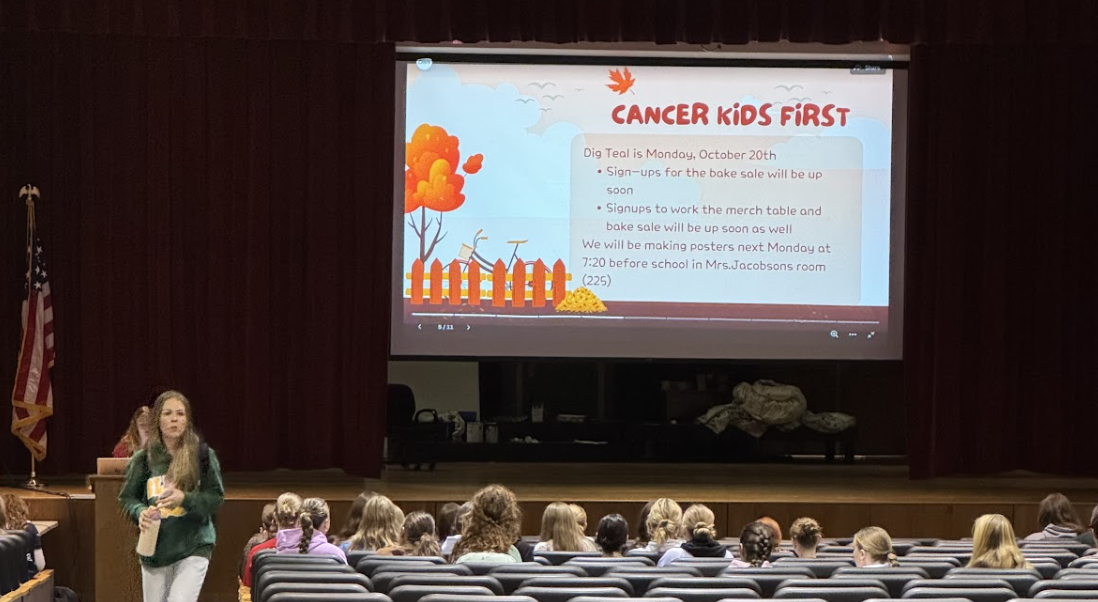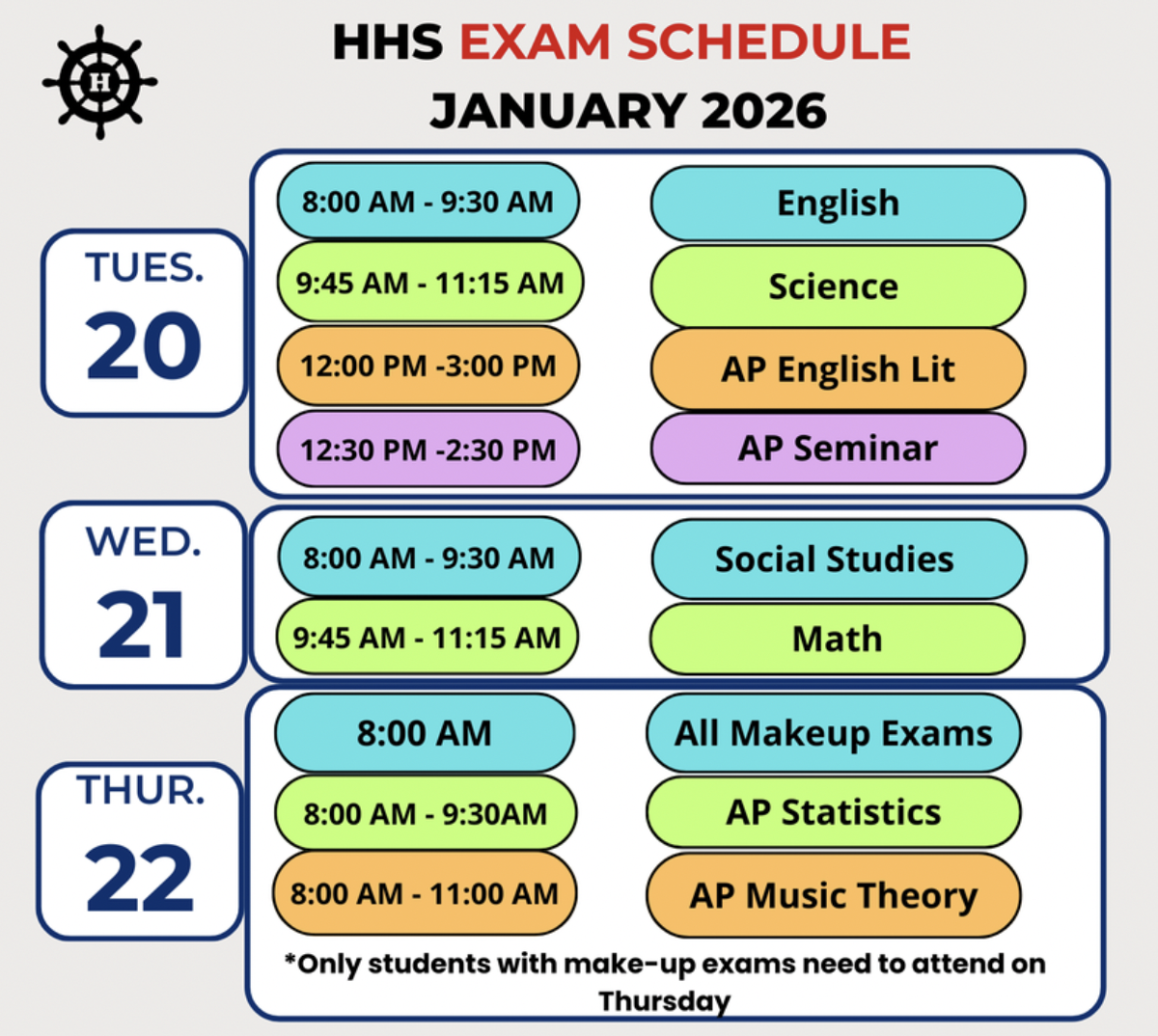This year there are two new developments on the club scene at HHS. One of the unique aspects of Hingham High’s club opportunities is that by joining a program such as business or arts pathway, students can have their extracurricular activities represented on their transcript. One new addition to the “pathway” programs at HHS is the Service Club. Service Club, similar to Arts, Technology and Engineering, and Business pathways, is an overarching umbrella program for many service related clubs at HHS.
The new Service Club combines six previously independent clubs, Free Period Talk, Generations Connect, Cancer Kids First, Empowering Women, Hospice Helpers, and Community Connections. At first there was some uncertainty surrounding the management of such a large group of students confined under one subheading. However, each individual organization within the Service Club has the authority to hold their own events and conduct their own projects relative to their causes. Principal of HHS, Dr. Buckey explains, “I see the Hingham service club as kind of the umbrella and then the projects like free period or cancer kids first, if they want to do a drive or hold a meeting they would coordinate that through the co advisor.”
The umbrella of Service Club could possibly result in an increased number of students joining more of the individual clubs within Service Club, creating a positive impact on the devotion of the student body at HHS to Service Related activities. Executive of Free Period Talk Madeline Accettella expressed, “I honestly think that merging with Service Club will be very beneficial. At first I was unsure, but after our first mass meeting, I am really excited for the year ahead! With more students involved, they will be inspired to help with all of the different projects.”
While uncertainty remains regarding the logistics of the club, many of the executives of the consolidated clubs are on board with the decision to combine into the Service Club. Addie Phelan, executive of Generations Connect, described, “I think that this merge with the service club will be good for Generations Connect because it will give generations connect to do its own thing but also have the structure of a larger club. It will give it a platform to have its own spotlight, but also be part of a bigger community and gain more participants.” Meanwhile, Tommy Hartnett, another executive of Generations Connect, harbors concerns regarding the allocation of funds and materials under an umbrella organization encapsulating six separate groups. He explaines, “I am worried that equal distribution of materials under Service Club could become an issue.”
Evidently, as Service Club remains in the early stages of development, there is still a nuance of unpredictability surrounding the pathway, however those involved are making the most of this change. President of service club as a whole and co-committee head of Cancer Kids First, Elise Fickes details, “Service club is still adjusting, obviously the consolidation of clubs wasn’t ideal but we are doing our best to make it work. We have events coming up like dig teal and our committee Free Period Talk is continuing to stock the bathroom with feminine products.”
Now, why were these clubs consolidated in the first place? Mainly due to the finances surrounding the approval of pilot programs at HHS. Dr. Buckey explained that every year there is a pool of money that is divided among approved pilot clubs, describing how “Hingham had created new language in their teachers contract on how clubs and activities would work. I used to joke that approving clubs is a full time job. The language in the contract explains that if it goes to a second year, and it was a successful pilot it becomes a full stipended position.” Due to this process, and Dr. Buckey’s excitement surrounding approving a multitude of clubs representing great ideas and thoughtful missions, an excess amount of clubs developed which could not be financially sustained by HHS. He further expressed “when we were looking for a way to value and honor the great clubs that were in existence, we thought that we could use the Service Club as a way to just meet in the middle.”
However, Service Club is not to be confused with the new Leadership and Service Award. The Service Award is a pilot program independent of the Service Club as is spearheaded by Mrs. Shinney. Dr. Buckey outlines the ideas behind this new installment, explaining how “community service did not become a graduation requirement, but we wanted to recognize the importance and value of community service. Ms Shiney has a google classroom that acts as a repository for anyone in the community that is looking for volunteers. Students can log their hours and she keeps track of them, and if a student meets a certain number of hours by the spring of their junior year they get the Leadership in Community Service which is a designation on their transcript.” The class of 2028 will be the first class that can take full advantage of this intriguing new opportunity to demonstrate community service on one’s transcript.
In terms of the prospect of approving and maintaining new clubs in the future, there is a process. Dr. Buckey explained how each year there is still money set aside for distribution among pilot clubs. Then, he stated, “we look at them at the end of the year and ask ourselves if they have longevity.” Therefore, there will be opportunities to propose new club ideas in the future.
Overall, there is hope that both the Service Club and the Service and Leadership Award will result in an abundance of students being attracted to service related activities, causing more students at HHS to get involved in serving the community in as many ways as possible.

































